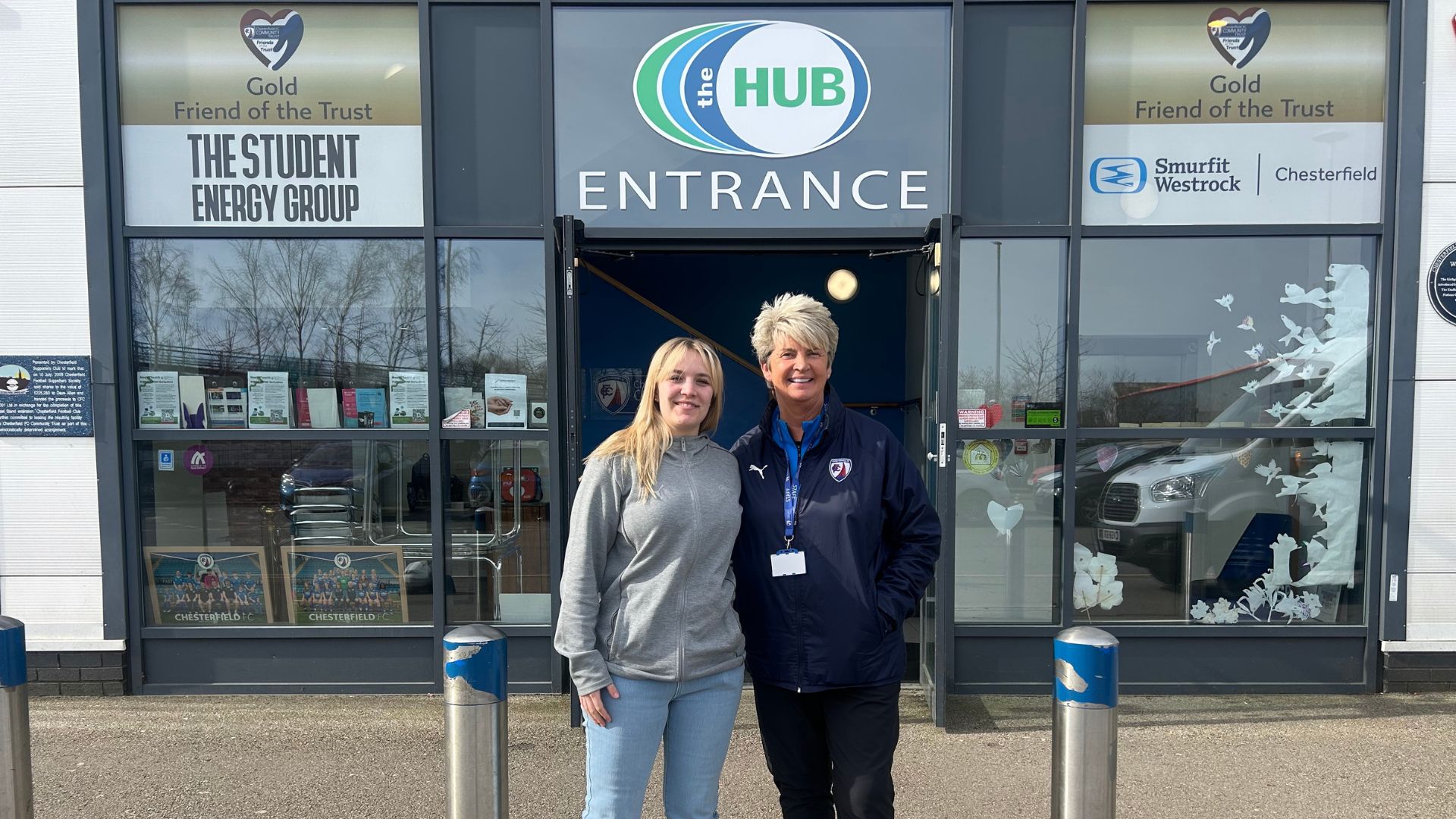Megan Tinsley, who plays for Derby County Women, has shown her support for the Trust’s efforts to increase cardio screening in the women’s game. She gives her thoughts on the subject…
Tell us why the Trust’s cardio screening initiative is something that particularly resonates with you…
When I was three years old, my mum just started to notice I was getting quite out of breath and not being able to run around as much as before. So my mum thought I’d got asthma. She took me to the doctors and they found that I’d got a hole in one of the bottom chambers of my heart. A lot of people are born with a hole in their heart, but the majority of them close up. However, as mine was right on the corner, it wasn’t closing up so I wasn’t getting enough blood into my heart. I had that done at Leeds when I was five years old. Then I got discharged when I was 15. I’ve still got an irregular heartbeat so whenever I’ve had screenings, I’ve had to inform the person doing it.
When did you start to experience further problems?
In 2021, I started to notice that whilst I was exercising, I was getting really out of breath. I was getting pains in my chest and certain things. I had not felt that for a while. I kept putting it off and because of COVID I was thinking, ‘Oh, it’s probably because I’ve not exercised enough’ as you were only allowed out for an hour to exercise. I just thought it was something to do with that. When I saw what happened to Christian Eriksen at the Euros, I started to wonder. I didn’t want that to happen so I thought I’d better go and get checked out.
What action did you take?
I had an ECG at the doctors, which I had to do off my own bat, because I was a little bit worried. They found something else, which wasn’t to do with my previous issue. It’s called ASD – Atrial Septal Defect – and due to that, I had to have a year out of football. They recommended to not do anything because all of a sudden a load of players were collapsing on the pitch. I had MRIs, I’d had ECGs, scans, and they still couldn’t find anything. So they eventually decided to put an implantable loop recorder (ILR) into my chest, which monitors my heartbeat and my heart rate for 24 hours.
It is worrying to think that some players with undetected heart issues are putting themselves at risk by playing football…
Yes, definitely. I was very lucky. My mum and I talk about it all the time. If my issue had gone undetected and I’d started playing football when I was younger, something really, really bad could have happened. And again, with the second incident, when you realise that you’re not up to the peak fitness of where you were, and you have to physically collapse to your knees and think to yourself, ‘God, there’s something really, really wrong’.
How concerning is it that cardio screening is not commonplace in girls’ and women’s football?
It’s a big concern, really. It’s just not fair when we’re wanting to be equal in the game. In the Women’s Super League, they’ll probably get a lot of screening, but from the Championship downwards, we don’t get anything. Like I said, I had to go off my own bat and go and sort it out myself because we didn’t have access to any cardio screenings, so we are at a much bigger risk of girls being undetected. Players in the men’s game, down to tier four, have the cardio screenings and we don’t, unfortunately.
What do you think of the work being done by the Community Trust to address that inequality?
I think it’s good. I think it needs to be raised. Rikke Sevecke, who used to play at Everton, has sadly had to retire due to a heart condition. It could have forced me to retire and it could have forced a number of other girls to retire. It’s just something that’s got to be addressed. The FA say that it’s not on a list of priorities, but that has to change.




